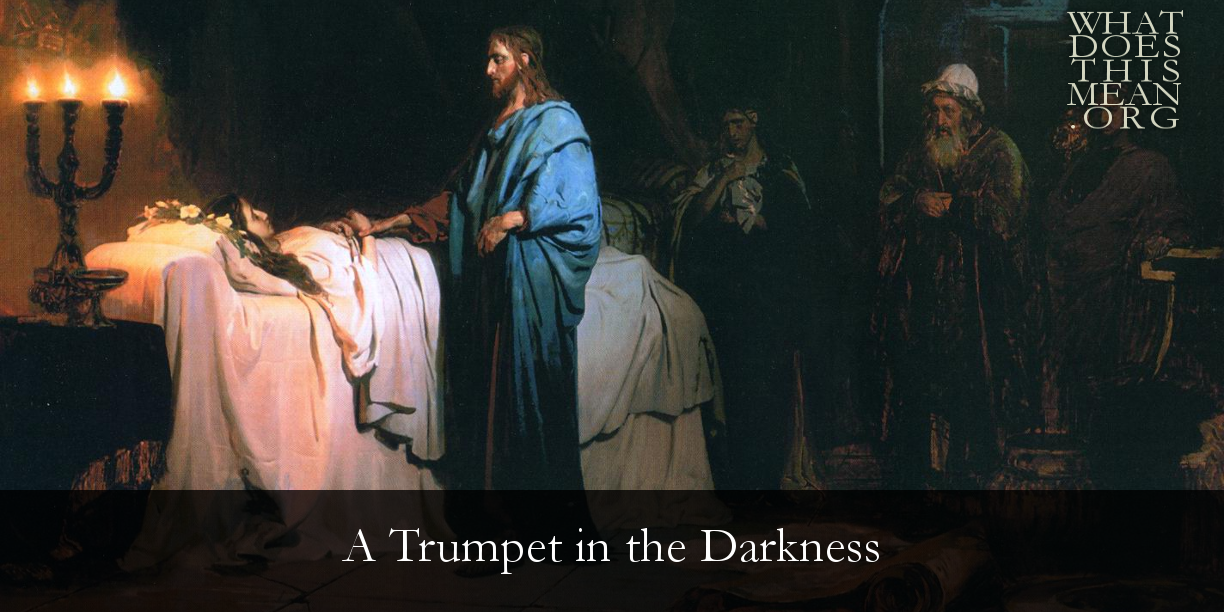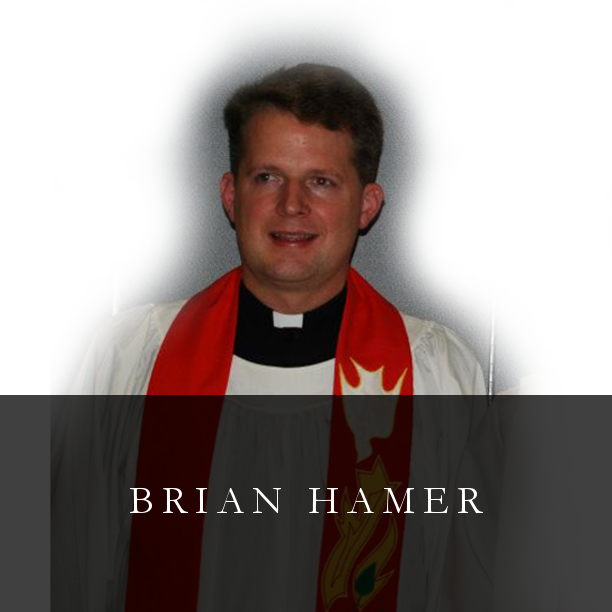| The Lord is my shepherd: therefore can I lack nothing. He shall feed me in a green pasture: and lead me forth beside the waters of comfort. He shall convert my soul: and bring me forth in the paths of righteousness, for his name’s sake. Yea, though I walk in the valley of the shadow of death, I will fear no evil: thy rod and thy staff comfort me. Thou shalt prepare a table before me against them that trouble me: thou hast anointed my head with oil, and my cup shall be full. But thy loving-kindness and mercy shall follow me all the days of my life: and I will dwell in the house of the Lord forever. (Psalm 23 from Book of Common Prayer) |
| I will lift up mine eyes unto the hills: from whence cometh my help. My help cometh even from the Lord: who hath made heaven and earth. He will not suffer thy foot to be moved: and he that keepeth thee will not sleep. Behold, he that keepeth Israel: shall neither slumber nor sleep. The Lord himself is thy keeper: he is thy defence upon thy right hand. So that the sun shall not burn thee by day: neither the moon by night. The Lord shall preserve thee from all evil: yea, it is even he that shall keep thy soul. The Lord shall preserve thy going out, and thy coming in: from this time forth and for evermore. (Psalm 121 from Book of Common Prayer) |
| Set me as a seal upon your heart, as a seal upon your arm, for love is strong as death . . . Many waters cannot quench love, neither can the floods drown it. Set me as a seal upon your heart, as seal upon your arm, for love is strong as death. — Song of Solomon 8:6–7 (excerpts) |
Musically, an ominous pedal point on the low F creates a sense of eternity and a solid foundation throughout the work. The basses sing this pedal point throughout the entire work, resulting in a 6 ½ minute crescendo, until the work settles to a close, as if being laid in a grave. Perhaps the reader will agree with me that the effect of the low F is stunning? The repetition of Alleluia, sometimes in a major melodic figure and sometimes minor, serves both as a melodic theme and textual “touch point” throughout. Especially notable for the mourners is how Tavener sets the word “life” apart as its own phrase. In contrast to numerous long phrases, the word “life” stands in isolation: “Alleluia / LIFE! / A shadow and a dream.” It’s as if Jesus Himself is speaking in the midst of the darkness, “I am the way and the truth and the life.” The gradual ascent of the soul into heaven is evident as the piece swells and the dynamic level peaks at the eschatological proclamation of the Son of Man, “Come, enjoy rewards and crowns I have prepared for you.”
| Alleluia! May flights of angels sing thee to thy rest. Alleluia. Remember me, O Lord, when you come into your kingdom. Alleluia. Give rest, O Lord, to your handmaid who has fallen asleep. Alleluia. The Choir of saints have found the well-spring of life and door of paradise. Alleluia. Life: a shadow and a dream. Alleluia. Weeping at the grave creates the song: Alleluia. Alleluia. Come, enjoy rewards and crowns I have prepared for you. — Text adapted from Shakespeare’s Hamlet and the Orthodox Funeral Service by Mother Thekla (1918–2011) |
| Almighty God, by the death of Your Son Jesus Christ You destroyed death and redeemed and saved Your little ones. By His bodily resurrection You brought life and immortality to light so that all who die in Him abide in peace and hope. Receive our thanks for the victory over death and the grave that He won for us. Keep us in everlasting communion with all who wait for Him on earth and with all in heaven who are with Him, for He is the resurrection and the life, even Jesus Christ, our Lord. Amen. (LSB Agenda, p. 139) |
+ + + + + + +
| In paradisum deducant te angeli; in tuo adventu suscipiant te martyres, et perducant te in civitatem sanctam Jerusalem. Chorus Angelorum te suscipiat, et cum Lazaro quondam paupere aeternam habeas requiem | May the angels lead you into paradise; at your coming may the martyrs receive you, and conduct you into the holy city, Jerusalem. May the chorus of angels receive you, and with Lazarus, once a pauper, eternally may you have rest. |
+ Alleluia! Christ is risen! He is risen indeed! Alleluia! +



 RSS Feed
RSS Feed
